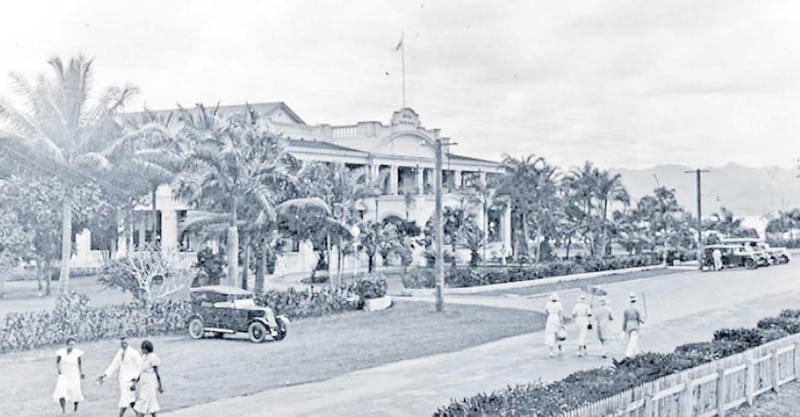THERE is a story on how Suva obtained electricity.
The Fiji Times on June 28, 1920, reported electricity lights being turned on for the first time in Suva.
It was a momentous occasion but one that came with a bit of persuasion on the part of Sir Henry Scott.
Sir Henry Scott (10 April 1876 – 20 May 1956) was a prominent Fijian lawyer, businessman and politician who was born and raised in Levuka.
His father was William Scott who originally emigrated to Fiji to be a cotton planter, but eventually became a lawyer.
Before electricity was being introduced, there were old kerosene lamps used around parts of the town, the last of which, once stood along Denison Rd.
Sir Henry described in a paper that was published in the Fiji Society of Science and Industry (1940-1944) that if it were not for a persistent engineer, the introduction of electricity in
Suva would not have come any time sooner.
At the time, World War I was raging on and the country’s Secretary of State would not allow money to be borrowed.
“Things however, came to a head as the engineer who was advising us, cabled from Sydney to say that a bargain was offering in the way of machinery, which would cost 13,000 pounds
and he strongly recommended the Legislative Council to buy it,” wrote Sir Henry.
“He had an option over the machinery for forty-eight hours and please cable him authority to purchase. This was on Saturday morning.”
Sir Henry immediately rang up the then Governor and asked him to come out at one o’clock for an afternoon’s fishing near the Sandbank.
“After a good afternoon’s sport the want of finance to purchase an electric light plant for Suva was explained and the Governor agreed that he would do what he could to assist
in installing electric light for Suva.
On Monday morning I received a letter from the Colonial Secretary saying that, subject to the approval of the Legislative Council, legislation would be passed giving the council
the necessary powers,” described Sir Henry.
Sir Henry and the Attorney-General then began drafting the necessary legislation. Although the municipal council had no money, the Bank of New Zealand advanced the sum of 13,000 pounds on Sir Henry’s guarantee and on June 10, 1920, the electric light plant was formally opened.
The list of electric light subscribers grew from 150 at the yearly revenue of 200 pounds to 800 or 900 subscribers with a revenue ofabout 20,000 pounds in a very few years.
“Similarly with a little push a fire brigade was started in Suva by the same council; and generally some very good work was done from 1915 to 1922,” said Sir Henry.




